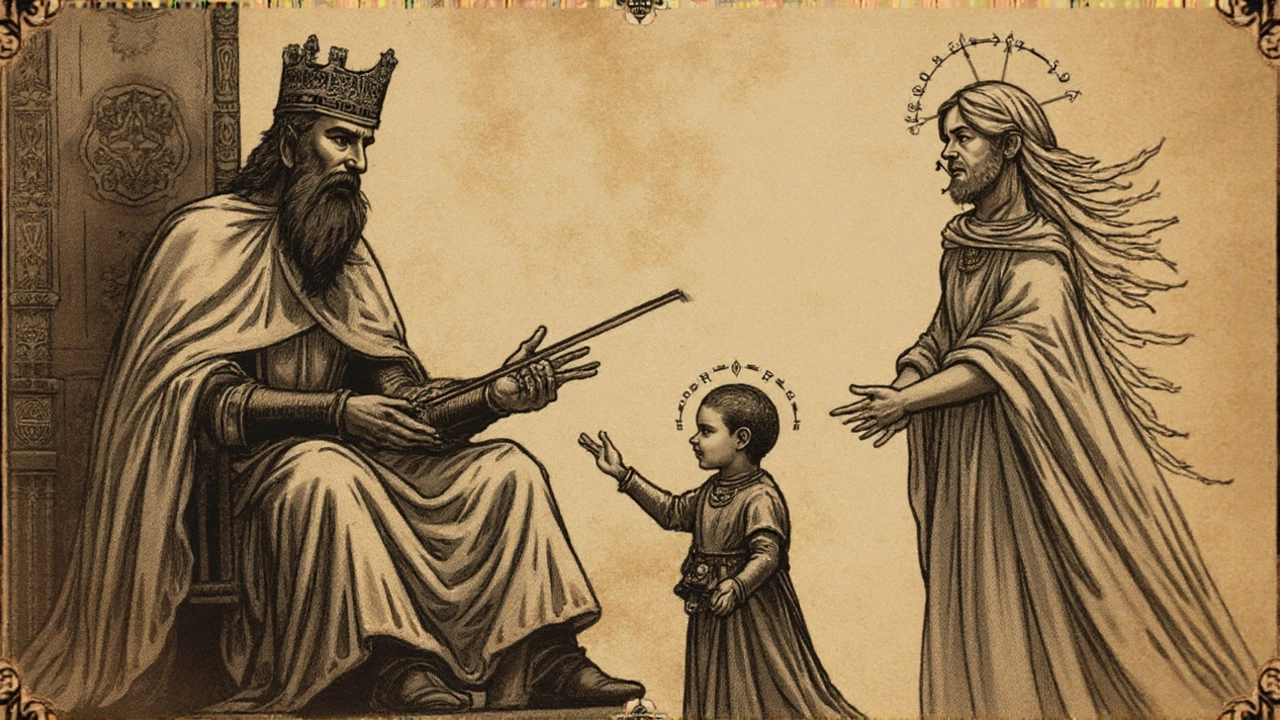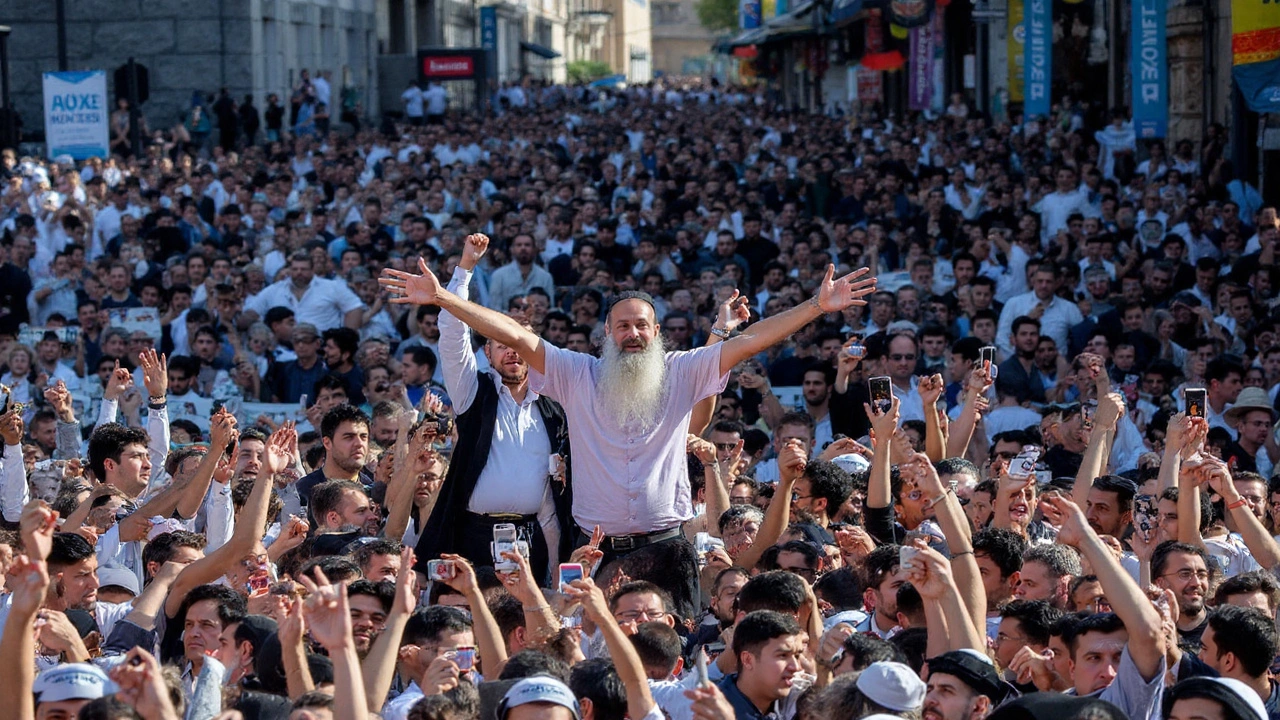Uman pilgrimage arrests spotlight Israel’s Haredi draft‑evasion debate
23 Sep, 2025Mass arrests turn a holy journey into a political flashpoint
When the first flights to Uman left Israeli airports this September, security guards weren’t just checking passports – they were hunting for men with active draft‑evasion warrants. Over the course of a week, more than a hundred haredi yeshiva students were stopped, questioned, and in many cases taken into custody. The biggest haul came on September 15, when Ben Gurion Airport detained 33 men in a single sweep.
The crackdown coincided with the lead‑up to Rosh Hashanah, the two‑day Jewish New Year that draws thousands of Breslov Hasidim to the burial site of Rabbi Nachman of Bratslav in Uman, Ukraine. For many ultra‑Orthodox families, the pilgrimage is a non‑negotiable spiritual duty. For the Israeli Defense Forces, however, those same men are classified as draft dodgers – a charge that carries a legal penalty, especially during the nation’s ongoing war.
Authorities say the arrests were legal and necessary. A spokesperson for the Israeli military explained that recent changes to airport screening protocols were designed to “prevent individuals with unresolved conscription cases from fleeing the country during a time of national emergency.” The legal adviser to the government added that there is currently no statutory exemption that would allow a person under a draft‑evasion warrant to travel abroad, even for religious purposes.
For the men caught in the net, the experience has been jarring. Yaakov Bermond, a Jerusalem resident who successfully made the journey to Uman, recounted his friend’s detainment at Terminal 4. “They treated us like criminals instead of worshippers,” he said. “If the government had approached this with a little dialogue rather than force, maybe we’d see real change.”
In response, a coalition of roughly a hundred Breslov rabbis – spanning both Ashkenazic and Sephardic traditions – gathered in Jerusalem to issue a unified directive. Their statement warned that anyone with a standing arrest warrant should stay put, emphasizing that “any attempt to leave the country risks immediate arrest.” The rabbis also renewed their longstanding opposition to any form of service, whether military, national, or civil, labeling conscription a “decree of religious annihilation.” They tasked educators and spiritual leaders with ensuring that their followers heed the warning.

Community leaders push back, but legal levers remain limited
Rabbi Natan Ben‑Nun, head of the Breslov Union in Uman, publicly appealed for the swift release of the detainees, arguing that their purpose was prayer, not tourism. “These pilgrims are coming to stand at Rabbi Nachman’s tomb, not to party,” he said. His plea was echoed by several Israeli Knesset members who urged the government to find a compromise that respects both religious freedom and national security.
Yet officials remain firm. The army’s pre‑holiday briefing warned that any attempt to outmaneuver the new airport screening would be met with “increased measures.” The briefing also reminded soldiers that Israeli law treats draft evasion during wartime as a serious offense, regardless of the individual’s religious status.
Despite the mounting pressure, the pilgrimage itself is still expected to draw a massive crowd. Preliminary estimates suggest that around 45,000 pilgrims will make the trek to Uman, even though Ukraine’s own war with Russia has added layers of logistical difficulty. Local Ukrainian authorities have already imposed extra security checks for incoming visitors, but they have not curtailed the event outright.
The situation illustrates a broader societal rift. On one side, the secular state insists that national defense is a collective responsibility that cannot be sidestepped by religious exemption. On the other, the ultra‑Orthodox community argues that years of full‑time Torah study constitute a different kind of service to the nation, one that should be recognized in law.
Legal scholars note that Israel’s draft law has, for decades, grappled with the balance between mandatory conscription and religious conscience. Previous attempts at compromise – such as offering “alternative civilian service” – have largely failed to win broad acceptance among haredi leaders, who view any state‑mandated contribution as a breach of their spiritual commitments.
What makes the current wave of arrests particularly contentious is the timing. The government’s decision to tighten airport security just weeks before a major religious holiday has been framed by critics as a punitive measure aimed at suppressing dissent. Supporters argue that the war’s intensity leaves no room for leniency when it comes to national defense.
For the families left behind, the arrests are more than a legal snag; they represent a painful separation during a period of deep spiritual significance. Some fathers have described the experience as “being torn between love for their children’s faith and love for their country.”
Meanwhile, on the ground in Uman, the city’s infrastructure is gearing up for the influx. Local hotels report full bookings, and community volunteers are setting up prayer tents to accommodate the expected crowds. The city’s mayor has pledged to cooperate with Israeli authorities to ensure the safety of pilgrims, while also acknowledging the delicate political backdrop.
As the first flights land and the scent of incense fills the air, the tension between the two worlds remains palpable. The phrase Uman pilgrimage arrests now carries weight far beyond the airport terminals – it symbolizes a clash that could shape Israel’s approach to religious exemption and military service for years to come.

 by
by